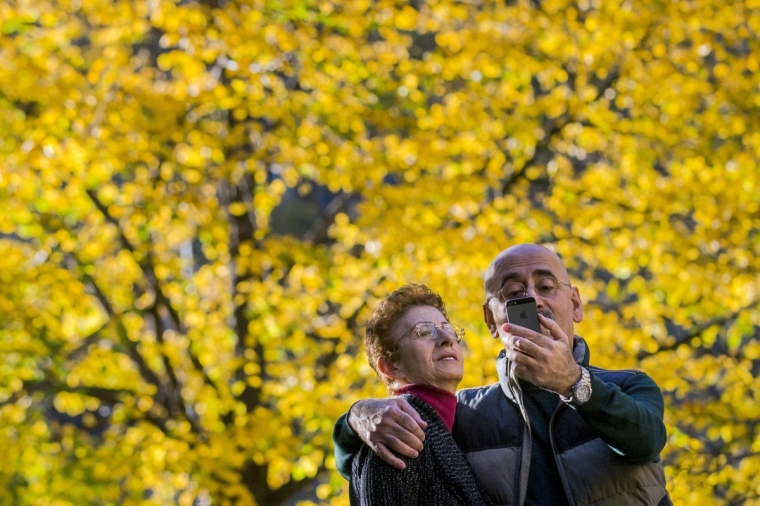'Selfie-centered world' costs compassion, fuels online anger

WINTER PARK, Fla. (Christian Examiner) – You wouldn't necessarily expect a negative view of technology from Craig Groeschel, the pastor of the second largest megachurch in the U.S. and founder of LifeChurch.tv, but he doesn't shy away from discussion the downside of the digital age in his new book, #Struggles: Following Jesus in a Selfie-Centered World.
"A lot of people now really don't even know how to show who they really because they've built an online image," Groeschel told Relevant Magazine. "It's really inauthentic and it's creating more of a loneliness."
It was while researching technology and society that Groeschel learned about what sociologists call "deferred loneliness," a uniquely digital emotion. "If I feel lonely in the moment," Groeschel explained, "I might post a picture and then go back a few minutes later to see if anyone liked it or commented. And so it kind of quenches that thirst for just a moment, but I'm actually deferring the loneliness to later and the need is actually not truly satisfied."
SELFIES AND SELFISHNESS
The Oklahoma pastor cited three reasons why technology desensitizes people and compromises their compassion. One, people are becoming more self-centered, and Christians are not exempt. "There are 93 million selfies taken a day. Any time I post something and you like it, my brain releases a little dopamine; I get a buzz," Groeschel said in the article..
Two, it is harder to care for someone through a screen. "If you're hurting and you post, 'Pray for me' on Twitter, OK, I'll pray for you," Groeschel said. "But if you're sitting next to me and I see your body language and I see your emotion, I care 10 times more—because we're together."
Three, the brain cannot discern differences in significance among things viewed on a phone, equating recipes with entertainment news and serious world events. "They all look equal on your feed, and so your brain doesn't really distinguish the ones that are so much more important."
In order to overcome the desensitizing and compassion-compromising drain of social media, Groeschel recommends a periodic three-day social media fast. "The first day is hard, the second day's kind of awkward, then the third day most people [are...] re-engaging in face-to-face relationships," Groeschel said, adding our identity should not be tied up in our online image.
FLIPPING TABLES
Along these lines, Relevant editor Jesse Carey writes Christians should strive to emulate Jesus' example in online speech as well as in person. Christians who excuse their online rants with reference to the story of Jesus' anger at money-changers in the temple are missing the point, he asserts.
"People are not wrong in saying that Jesus was unapologetically displaying a righteous anger to prevent people from being taken advantage of in the name of God," Carey said in an opinion article. "But the reason the imagery is so powerful is the exact same reason it shouldn't be a default excuse for every angry online rant: It was seemingly out of character for Jesus."
That kind of fiery anger wasn't commonplace for Jesus, who more often responded to people with forgiveness, Carey said, recommending that we also save our outrage for instances of "extreme injustice."
"Getting defensive—or simply overly divisive and ungracious—on social media all of the time isn't Christlike, even if you use the story of Jesus at the temple as an excuse," Carey said.
Carey's recommendation for Christian response to online posts and Groeschel's points about social media's toll on compassion and empathy should charge Christians to treat social media use carefully and according to conviction, lest "flipping tables" become Christians' normal retort.
Regarding the benefits of the digital age, Groeschel said, "[W]e have to understand social media and technology can supplement our relationships, but they cannot replace them."